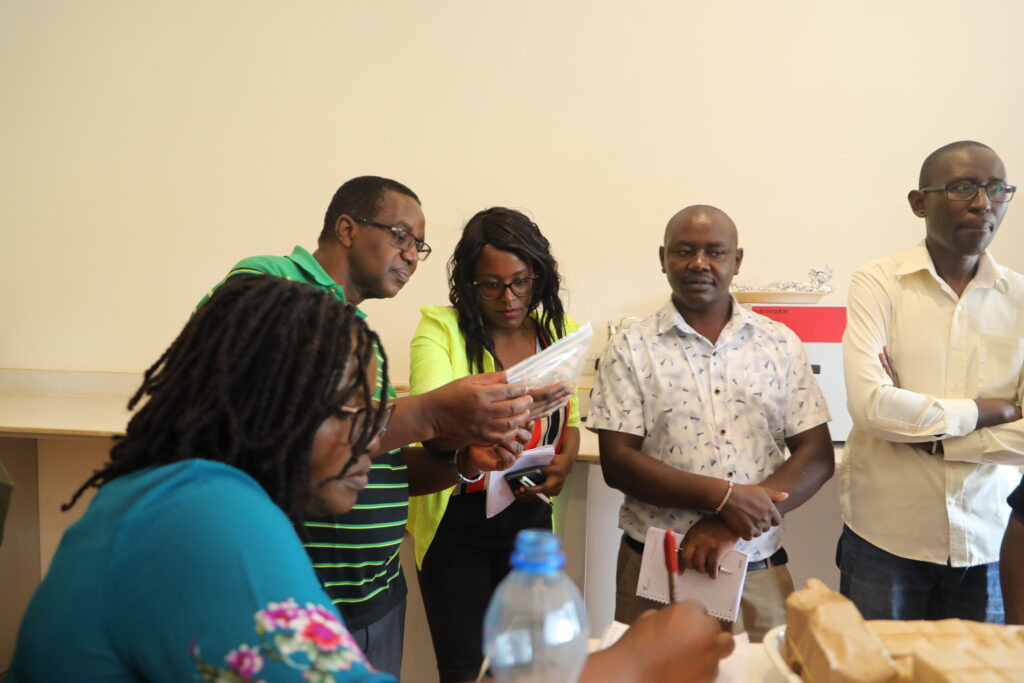
CONCEPT NOTE
INTERNATIONAL TRAINING ON RESOURCES FOR RENEWABLE ENERGY AND ENERGY EFFICIENCY TECHNOLOGIES
BACKGROUND
The transition to renewable energy and energy efficiency technologies is critical for achieving sustainable energy goals, reducing greenhouse gas emissions, and enhancing energy security. With the increasing global demand for clean energy, understanding the resources, technologies, and strategies that support renewable energy development and energy efficiency improvements is essential for policymakers, engineers, researchers, and energy practitioners.
This course, developed by the Environmental Capacities and Sustainability (ECAS) Institute, aims to equip participants with a comprehensive understanding of renewable energy resources, emerging technologies, and best practices for energy efficiency. It covers key renewable energy sources such as solar, wind, hydro, biomass, and geothermal energy, as well as strategies to optimize energy use in buildings, industries, and transportation. Participants will also explore energy storage solutions, smart grid integration, and financing mechanisms that support the adoption of clean energy technologies.
By integrating scientific insights, policy frameworks, and real-world case studies, this course will enable participants to effectively contribute to the development and implementation of sustainable energy projects.
OBJECTIVES OF THE TRAINING
By the end of this course, participants will be able to:
- Understand the availability and potential of renewable energy resources worldwide.
- Analyze different renewable energy technologies and their applications in various sectors.
- Explore energy efficiency measures and their role in reducing energy consumption.
- Assess policies, financial mechanisms, and business models for scaling up renewable energy and energy efficiency initiatives.
- Identify challenges and opportunities in the transition to clean energy solutions.
- Examine case studies of successful renewable energy and energy efficiency projects.
WHAT YOU WILL LEARN
Participants will gain knowledge and practical skills in:
- Types of renewable energy resources and their applications.
- Solar, wind, hydro, biomass, and geothermal energy technologies.
- Energy storage systems and smart grid technologies.
- Energy efficiency strategies in buildings, industries, and transportation.
- Policies and regulations supporting renewable energy deployment.
- Investment and financing models for clean energy projects.
- Case studies on successful renewable energy and energy efficiency programs.
- Innovations in clean energy research and development.
DURATION AND PROGRAM
TARGET PARTICIPANTS
This course is designed for energy professionals, policymakers, engineers, researchers, environmental planners, project developers, and business leaders working in the renewable energy and energy efficiency sectors.
It is also beneficial for government agencies, international organizations, NGOs, utility companies, financial institutions, and entrepreneurs involved in energy transition projects, climate change mitigation, and sustainable energy planning
TRAINING MODULES
| No | Module | Details | |
| 1. | Solar Energy Technologies and Applications |
|
|
| 2. | Solar Energy Technologies and Applications |
|
|
| 2. | Wind Energy Systems and Integration |
|
|
| 3. | Hydropower and Biomass Energy Solutions |
|
|
|
4.
|
Geothermal and Emerging Renewable Technologies |
|
|
| 5. | Energy Efficiency Technologies and Applications |
|
|
| 6. | Financing and Policy Frameworks for Renewable Energy |
|
|
| 7. | Case Studies and Best Practices in Renewable Energy and Energy Efficiency |
|
|
TRAINING STYLE
This course follows a blended learning approach, integrating expert-led lectures, hands-on exercises, real-world case studies, and interactive group discussions. Participants will engage in scenario-based learning, policy simulations, and data-driven decision-making exercises to develop practical solutions for renewable energy and energy efficiency challenges.
Additionally, the course includes peer-to-peer learning, networking sessions, and field visits (where applicable) to provide insights into successful energy projects and best practices. Through practical applications and strategic discussions, participants will gain the expertise needed to support sustainable energy initiatives and drive the clean energy transition.
GENERAL NOTES
- Training manuals and additional reference materials are provided to the participants.
- Upon successful completion of this course, participants will be issued with a certificate.
- We can also do this as a tailor-made course to meet organization-wide needs. Contact us to find out more: info@ecasiafrica.org.
- Payment should be sent to our bank account before the start of training and proof of payment sent to: info@ecasiafrica.org.
ABOUT ECAS INSTITUTE
The ECAS Institute designs and delivers independent and targeted training, research, and consulting services. Our work focusses on climate change and resilience building, carbon markets, renewable energy, nature-based solution, biodiversity conservation, agriculture and food systems, We are located in Nairobi Kenya and work across the African region. We have implemented training and research assignments in Kenya, Tanzania, Uganda, South Sudan, Somalia, Malawi, Rwanda, Congo, and South Africa. Globally, we have supported our partners from the UK, Denmark, Italy, Sweden, Germany, and USA.

